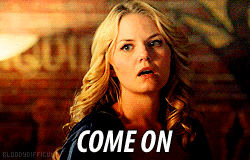Question: Did God pour out His wrath on His Son at the crucifixion?
Response: No.
Catholicism, in general, doesn't speak of God as wrathful, or "pouring out His anger" on Jesus in our stead.
One can search the Catechism of the Catholic Church in its entirety for the word "wrath", and the only thing that pops up is a reference to wrath as a human sin.
Wrath, as applied to God, never once appears in our Catechism.
However, the Bible clearly speaks of God's wrath, so one cannot deny that there is a way of speaking of God's wrath that is, indeed, part of the Christian paradigm.
Catholics simply approach these Scriptural references to a "wrathful" God with the lens of the entirety of the Christian gospel. This view that puts the wrath of God in a place of prominence was not part of Christianity from its inception. And this rejection of a "wrathful God" has been the consistent approach for 2000 years.
However, 500 years ago a novel interpretation of these Scriptures appeared. During the Protestant Reformation there arose a way of interpreting the Scriptures that spoke of "God pouring out His wrath, full strength and undiluted, on Jesus on the cross". One of the leaders this view was a French theologian named John Calvin. Today, the fruit of this paradigm, referred to as "Calvinism", can be found in the Presbyterian churches, or "Reformed Christian" churches. But because there is no magisterium to speak for this type of theology, the borders of who identifies with Calvinism can be quite fluid. There are Reformed Baptist churches, Reformed Anglican churches, Orthodox Reformed Presbyterian churches, Calvin Synod of the United Church of Christ, etc etc etc, which all promote the doctrines of John Calvin--he asserted that God's wrath was appeased when Jesus, His Divine Son, was put to death on the cross for our sins. That is, God was pacified when Jesus was punished for the sins of humanity.
Calvin also asserted that man is totally depraved. That is, we are evil. Calvinism professes that fallen man can do nothing good, and that our every action is sinful. Calvinists even proclaim that human nature, while originally created in the image and likeness of God, ceased to be in His image due to original sin. "On the other hand, when original sin took them once captive the image of God was entirety blotted out."--source
Catholicism rejects these teachings of Calvin.
God does not punish His Son for the sins of humanity. This view that God was appeased by the torture of His Son is called "Penal Substitution Theory" and is rejected by the Catholic Church.
Rather, Christ offered His life in sacrifice out of love. It is an atonement, but not a punishment.
"The Catholic view of atonement is called the Satisfaction view. Instead of taking our punishment on Himself, Christ offered up something else that God would accept instead: Himself, a holy, perfect, blameless sacrifice, freely offered for all sinners. This offering was worth so much more than our punishment, and in offering this sacrifice, Christ appeased God’s wrath.Unlike penal substitution, satisfaction is certainly found in Scripture. One of the most obvious accounts comes from the incident of the golden calf at Mount Sinai (Exodus 32 / Deuteronomy 9:15-21). While Moses is with God on Mount Sinai, Aaron and the Israelites make a golden calf to worship. God sees this and is angry, intending to destroy them. Moses asks the Lord to have mercy, and goes down the mountain. After dealing with the situation, Moses says to the people, “You yourselves have committed a great sin; and now I am going up to the LORD, perhaps I can make atonement for your sin” (Ex 32:30). Later, he says, “I fell down before the LORD, as at the first, forty days and nights; I neither ate bread nor drank water, because of all your sin which you had committed in doing what was evil in the sight of the LORD to provoke Him to anger” (Deut 9:18). Moses tried to make atonement, and was successful. Many died, but God did not destroy the nation of Israel.There are other examples of this satisfaction, such as Phinehas (Psalm 106:29-30 / Numbers 25:1-13). Israel began to worship the false god Baal, again stirring the Lord’s wrath against Israel. Phinehas, in his zeal, killed an Israelite and his Midianite wife, and thereby “turned back” God’s wrath (Numbers 25:11). Though all Israel sinned, Israel was not destroyed. Like Phinehas and Moses, Jesus offered up something else to God so that we wouldn’t be punished. He offered Himself.Also unlike penal substitution, satisfaction and forgiveness are compatible. Something that wasn’t owed to God was given so that what was owed would not be demanded (compared to penal substitution saying that something that was owed to God was given by someone else). Thus, God’s justice is satisfied, but forgiveness still occurs." source
Regarding John Calvin's "Total Depravity": Catholicism professes that we are not evil and "totally depraved" but rather we are "flawed" and "weakened".
While we will never become a "new creation", holy and fit for residing in the Presence of the Godhead, except through grace and faith in our Lord Jesus Christ, it is a mistaken notion to declare us depraved and evil.
"We are his handiwork, created in Christ Jesus for the good works that God has prepared in advance, that we should live in them"--Ephesians 2:10
Catholicism proclaims the essential goodness of human nature, despite our being weakened and harmed by original sin.

